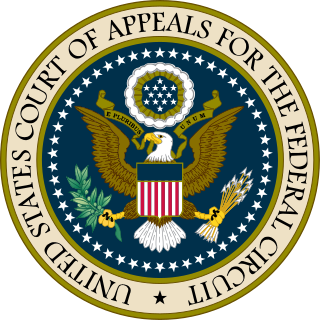Related Research Articles

Eolas is a United States technology firm formed as a spin-off from the University of California, San Francisco (UCSF), in order to commercialize UCSF's patents for work done there by Eolas' co-founders, as part of the Visible Embryo Project. The company was founded in 1994 by Dr. Michael Doyle, Rachelle Tunik, David Martin, and Cheong Ang from the UCSF Center for Knowledge Management (CKM). The company was created at the request of UCSF, and was founded by the inventors of the university's patents.
The software patent debate is the argument about the extent to which, as a matter of public policy, it should be possible to patent software and computer-implemented inventions. Policy debate on software patents has been active for years. The opponents to software patents have gained more visibility with fewer resources through the years than their pro-patent opponents. Arguments and critiques have been focused mostly on the economic consequences of software patents.

Aéropostale Inc., is an American shopping mall–based retailer of casual apparel and accessories, principally aimed at young adults and teenagers. Aéropostale maintains control over its proprietary brands by designing, sourcing, marketing, and selling all of its own merchandise. The company sells via Aéropostale stores in the United States and through its e-commerce site.

In international law and business, patent trolling or patent hoarding is a categorical or pejorative term applied to a person or company that attempts to enforce patent rights against accused infringers far beyond the patent's actual value or contribution to the prior art, often through hardball legal tactics Patent trolls often do not manufacture products or supply services based upon the patents in question. However, some entities, which do not practice their asserted patent, may not be considered "patent trolls", when they license their patented technologies on reasonable terms in advance.

1-Click, also called one-click or one-click buying, is the technique of allowing customers to make purchases with the payment information needed to complete the purchase having been entered by the user previously. More particularly, it allows an online shopper using an Internet marketplace to purchase an item without having to use shopping cart software. Instead of manually inputting billing and shipping information for a purchase, a user can use one-click buying to use a predefined address and credit card number to purchase one or more items. Since the expiration of Amazon's patent, there has been an advent of checkout experience platforms, such as ShopPay, Simpler, PeachPay, Zplit, and Bolt which offer similar one-click checkout flows.

Newegg Commerce, Inc., is an American online retailer of items including computer hardware and consumer electronics. It is based in City of Industry, California. It is majority-owned by Liaison Interactive, a multinational technology company.
Uniloc Corporation is a company founded in Australia in 1992.
Veriato, formerly known as SpectorSoft, is a software company that develops and sells user behavior analytics and employee monitoring software.

Edgio, Inc., evolved from Limelight Networks, a 20-year provider content delivery services to stream digital content over the internet. Following a 2022 acquisition of Edgecast, the company re-branded as Edgio and has grown to offer a full suite of edge-enabled applications that run on the company's globally scaled network. These applications include video workflow and automation, website acceleration, and cyber security. As of January 2023, the company's network has more than 300 points-of-presence and delivers with 250+ terabits per second of egress capacity across the globe.
Opposition to software patents is widespread in the free software community. In response, various mechanisms have been tried to defuse the perceived problem.

Vringo was a technology company that became involved in the worldwide patent wars. The company won a 2012 intellectual property lawsuit against Google, in which a U.S. District Court ordered Google to pay 1.36 percent of U.S. AdWords sales. Analysts estimated Vringo's judgment against Google to be worth over $1 billion. The Court of Appeals for the Federal Circuit overturned the District Court's ruling on appeal in August 2014 in a split 2-1 decision, which Intellectual Asset Magazine called "the most troubling case of 2014." Vringo appealed to the United States Supreme Court. Vringo also pursued worldwide litigation against ZTE Corporation in twelve countries, including the United Kingdom, Germany, Australia, Malaysia, India, Spain, Netherlands, Romania, China, Malaysia, Brazil and the United States. The high profile nature of the intellectual property suits filed by the firm against large corporations known for anti-patent tendencies has led some commentators to refer to the firm as a patent vulture or patent troll.
Lodsys, LLC was an American patent holding company located in Marshall, Texas that brought patent infringement lawsuits against a variety of companies in the US. Numerous app development enterprises have accused them of "patent trolling".

James Rodney Gilstrap is the Chief United States district judge of the United States District Court for the Eastern District of Texas. He is notable for presiding over more than one quarter of all patent infringement cases filed in the nation and is often referred to by various sources as the country's single "busiest patent judge."
Apple Inc. v. Samsung Electronics Co., Ltd. is the general title of a series of patent infringement lawsuits between Apple Inc. and Samsung Electronics in the United States Court system, regarding the design of smartphones and tablet computers. Between them, the two companies have dominated the manufacturing of smartphones since the early 2010s, and made about 40% of all smartphones sold worldwide as of 2024. In early 2011, Apple began litigating against Samsung in patent infringement suits, with Samsung typically filing countersuits with similar allegations. Apple's multinational litigation over technology patents became known as part of the smartphone wars: extensive litigation and fierce competition in the global market for consumer mobile communications.

VirnetX is a publicly traded Internet security software and technology company based in Zephyr Cove, Nevada. Founded in 2005, its patent portfolio includes U.S. and international patents in areas such as DNS and network communication.
Personal Audio LLC is a Beaumont, Texas-based company that enforces and earns licensing revenue from five patents. The company has often been accused of being a patent troll, making money solely through royalties on frivolous and sweeping patents.
Google has been involved in multiple lawsuits over issues such as privacy, advertising, intellectual property and various Google services such as Google Books and YouTube. The company's legal department expanded from one to nearly 100 lawyers in the first five years of business, and by 2014 had grown to around 400 lawyers. Google's Chief Legal Officer is Senior Vice President of Corporate Development David Drummond.
TC Heartland LLC v. Kraft Foods Group Brands LLC, 581 U.S. ___ (2017), was a United States Supreme Court case concerning the venue in patent infringement lawsuits.
Oil States Energy Services, LLC v. Greene's Energy Group, LLC, 584 U.S. ___ (2018), was a United States Supreme Court case in which the Court held that the inter partes review process granted by Congress to the United States Patent and Trademark Office for challenging the validity of patents, rather than a jury trial, is constitutional and did not violate either Article III of the Constitution nor the Seventh Amendment.

Amazon. com, Inc. v. Barnesandnoble. com, Inc., 337 F.3d 1024, was a court ruling at the United States Court of Appeals for the Federal Circuit. The ruling was an important early cyberlaw precedent on the matter of the technologies that enable e-commerce and whether such technologies are eligible for patent protection.
References
- 1 2 Kyle Wagner (January 28, 2013). "How the "Shopping Cart" Patent Almost Ruined Online Shopping—And How Newegg Beat It". Gizmodo . Retrieved January 29, 2013.
- ↑ Miller, Roger LeRoy (2014). Business Law Today, Comprehensive: Text and Cases: Diverse, Ethical, Online, and Global Environment (10th ed.). South-Western College/West. p. 150. ISBN 978-1285428932 . Retrieved February 14, 2016.
- 1 2 Joe Mullin (April 2, 2015). ""Shopping cart" patent troll shamelessly keeps litigating, and losing". Ars Technica. Retrieved February 14, 2016.
- 1 2 Albanesius, Chloe (January 28, 2013). "Newegg Crushes Patent Troll in Online 'Shopping Cart' Suit". PC Magazine . Retrieved 29 January 2013.
- ↑ Gene Quinn (December 12, 2013). "Soverainv. Newegg: Not an Ordinary Obviousness Dispute". IP Watchdog. Retrieved December 12, 2013.
Despite what you may have heard, this is not an example of a bad patent, nor is it something that wasn't new or was legitimately obvious at the time it was invented, which would have been some meaningful time before October 24, 1994. This is an example of a pioneering invention that came about at the dawn of Internet as we know it today.
- ↑ "Is Soverain Software a patent troll? Yes". Gizmodo . April 4, 2014. Retrieved September 19, 2015.
- ↑ "Amazon pays $40 million to settle patent dispute". ZDNet . Retrieved 28 January 2013.
- ↑ In Soverain Software LLC v. Newegg Inc., No. 11-1009 (Fed. Cir. January 22, 2013)
- ↑ "Patent Watch: Soverain Software LLC v. Newegg Inc" . Retrieved 28 January 2013.
- ↑ "Soverain Patents Found Valid and Infringed". PR Newswire. Retrieved 28 January 2013.
- ↑ "Sovertain Software LLC v. Newegg Inc" (PDF). United States Court of Appeals for the Federal Circuit. January 22, 2013. Retrieved 29 January 2013.
- ↑ How Newegg crushed the “shopping cart” patent and saved online retail, by Joe Mullin - January 27, 2013, arstechnica.com
- ↑ "Soverain Petition for Cert" . Retrieved 20 November 2013.
- ↑ "Soverain amicus briefs" . Retrieved 20 November 2013.
- ↑ "Internet Patent Owner Loses High Court Bid to Revive Suit" . Retrieved 13 January 2014.
- ↑ "Supreme Court Order" (PDF). Retrieved 13 January 2014.
- ↑ ""Shopping cart" patent beaten by Newegg comes back to court, loses again" . Retrieved 13 February 2015.
- "Soverain Software LLC v. Nordstrom, Inc". Priorsmart.com. March 14, 2012. Retrieved 29 January 2013.
- "Soverain Software LLC v. International Business Machines Corp. et. al". Priorsmart.com. March 14, 2012. Retrieved 29 January 2013.
- "Soverain Software LLC v. Oracle Corporation et. al". Priorsmart.com. March 14, 2012. Retrieved 29 January 2013.
- "Soverain Software LLC v. Office Depot, Inc". Priorsmart.com. March 14, 2012. Retrieved 29 January 2013.
- "Soverain Software LLC v. W.W. Grainger, Inc. et. al". Priorsmart.com. March 14, 2012. Retrieved 29 January 2013.
- "Soverain Software LLC v. eBay, Inc. et. al". Priorsmart.com. March 14, 2012. Retrieved 29 January 2013.
- "Soverain Software LLC v. Macys, Inc. et. al". Priorsmart.com. March 14, 2012. Retrieved 29 January 2013.
- "Soverain Software LLC v. Office Depot, Inc". Priorsmart.com. March 14, 2012. Retrieved 29 January 2013.
- "Soverain Software LLC v. Oracle Corporation et al" (PDF). Ars Technica. March 30, 2015. Retrieved 13 February 2015.